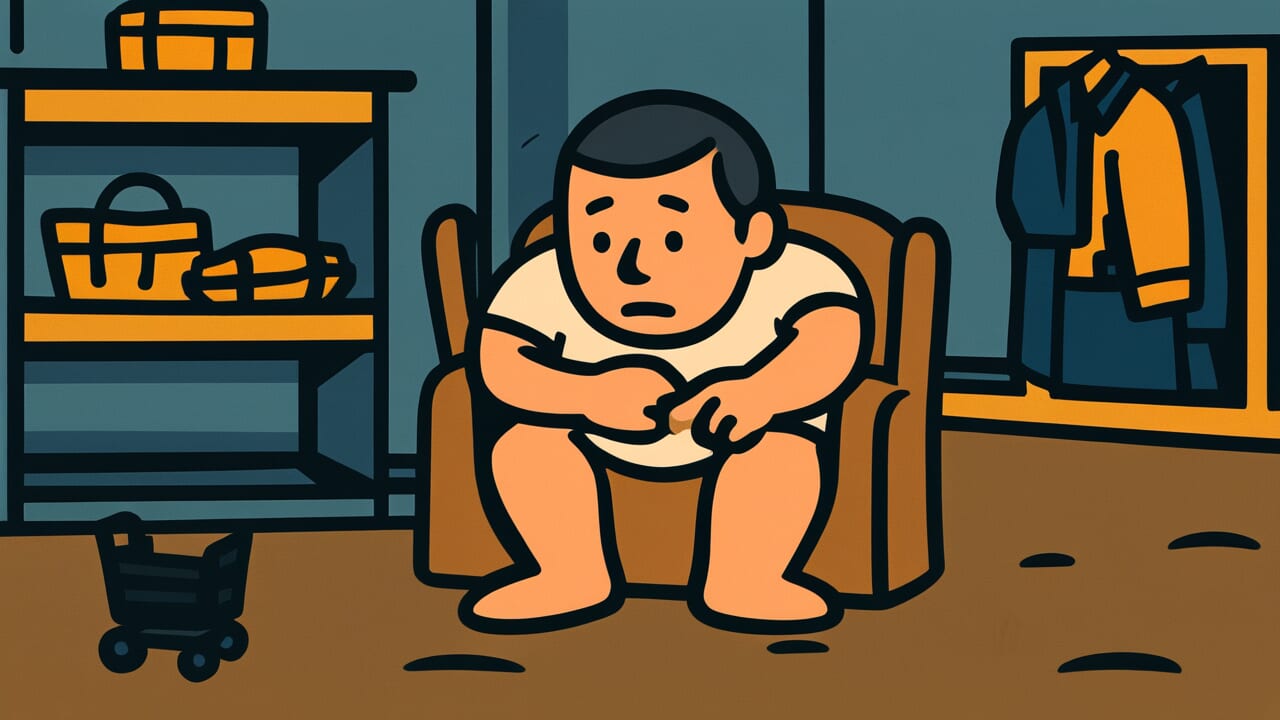How to Read “Nothing is more painful than poverty”
Hin hodo tsurai mono wa nashi
Meaning of “Nothing is more painful than poverty”
“Nothing is more painful than poverty” is a proverb that means being poor is more painful and difficult than anything else. It expresses how the suffering that poverty brings to people is more serious than any other hardship.
This proverb shows that economic hardship doesn’t just mean lacking money. It torments people in every aspect of daily life.
You can’t eat proper meals. You can’t get treatment when you’re sick. You can’t give your children an education. Such situations eat away at a person’s heart.
Even today, people use this proverb when talking about the seriousness of poverty. It remains convincing as words that express how financial difficulties destroy relationships, make people lose hope for the future, and rob them of peace of mind.
Origin and Etymology
The exact source of this proverb is unclear. However, it’s believed to have come from the lived experiences of common people during the Edo period.
In Japanese society at that time, many people suffered from poverty due to famines and disasters. That pain was a familiar reality.
The word “poverty” didn’t just mean lacking money. It referred to situations where survival itself was threatened—no food, no clothes, unstable housing.
Edo period documents contain many records of families being separated due to poverty. People couldn’t see doctors even when they got sick.
This proverb uses the superlative expression “nothing is more painful.” This is because people shared the real experience that poverty robs human dignity and corners people both physically and mentally.
Life has many kinds of pain—illness, separation, and more. But poverty has the power to worsen all of these and even steal hope itself.
This phrase, passed down through the lives of common people, contains the desperate voices of those who faced poverty.
Usage Examples
- When I was young, I painfully realized that nothing is more painful than poverty, so I don’t want today’s children to experience the same thing
- They say nothing is more painful than poverty, and when I truly had no money, I was scared that even my heart would become poor
Universal Wisdom
The proverb “Nothing is more painful than poverty” has been passed down through the ages. This is because it captures a fundamental suffering related to human survival.
Humans are social creatures who live in relationships with others. But poverty shakes those relationships at their foundation.
When people lack money, they feel ashamed to ask for help. They start avoiding social interactions. At life’s milestones like children’s education or marriage, their choices become limited for economic reasons.
Even more serious is the impact poverty has on people’s hearts. When you’re worried about tomorrow’s meal, it becomes hard to dream or enjoy hobbies.
You lose peace of mind. You get irritated over small things. Sometimes you even destroy relationships with people you care about.
This proverb uses the superlative “nothing is more painful” because poverty isn’t just material deprivation. It robs people of the very dignity of living as humans.
Our ancestors captured in these brief words that economic stability is the foundation of human happiness. That remains a truth unchanged in modern times.
When AI Hears This
Research shows that when you examine the brains of people in poverty, their IQ test scores drop by an average of 13 points. This is the same level of cognitive decline as being sleep-deprived or mildly drunk.
In other words, poverty doesn’t “make you stupid.” It creates a state that “prevents you from using your brain.”
The true nature of this phenomenon is the depletion of cognitive resources. The human brain has limits to how much information it can process simultaneously.
In poverty, problems directly connected to survival constantly occupy the brain’s memory. Questions like “How will I pay for today’s food?” or “Will I make the rent payment?”
It’s like running ten heavy apps on your smartphone at once. When you try to open other apps, they run slowly or freeze.
What’s even more cruel is that this depletion of cognitive resources steals away “the judgment needed to escape poverty.” The composure to speak appropriately in a job interview. The focus to study for the future. The capacity to choose healthy meals.
All of these require cognitive resources. In other words, poverty is a trap that makes the very tools needed for escape unusable.
As Maslow said, when survival needs aren’t met, you can’t achieve self-actualization. You can’t even exercise basic thinking ability. This is the true pain of poverty.
Lessons for Today
What this proverb teaches modern people is that we must not underestimate the importance of economic stability. “Money isn’t everything” is true, but that doesn’t mean we should overlook the importance of an economic foundation.
In modern society, planning for the future matters. Systematic saving, securing income sources, and acquiring skills are all important.
Also, building relationships where you can ask for help when in trouble becomes a vital safety net against financial difficulties.
At the same time, this proverb poses a question to society as a whole. A society where people suffer from poverty is difficult for everyone to live in.
Reaching out to those in trouble and supporting systems that provide fair opportunities ultimately connect to your own peace of mind.
Value your own economic stability while also paying attention to others’ difficulties. Having such a balanced perspective may be what this proverb asks of us living in modern times.



Comments